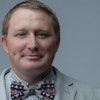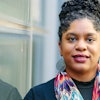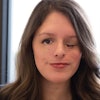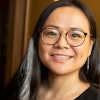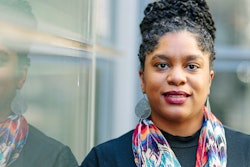Dr. Adelle Dora Monteblanco
Title: Assistant Professor, Department of Public Health, Pacific University
Age: 37
Education: B.S., environmental science, Regis University, and Ph.D., sociology, University of Colorado Boulder
Career mentors: Elaine Enarson, independent scholar; Ophra Leyser-Whalen, University of Texas at El Paso; and Ron Aday, Middle Tennessee State University
Words of wisdom/advice for new faculty members: “Your career path may look very different than your mentors and/or your faculty colleagues. Observe and learn what others have done, but don’t be afraid to plot your own course and follow your own compass.”
At the intersection of climate change, gender, and maternal health, Dr. Adelle Monteblanco is making waves. As assistant professor of public health at Pacific University in Forest Grove, Oregon, Monteblanco studies the impact of extreme climate on the health and wellbeing of vulnerable populations, particularly pregnant people.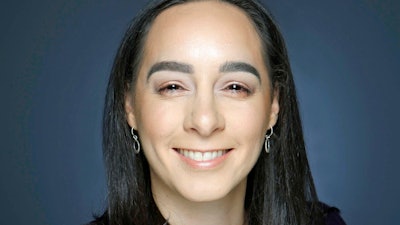 Dr. Adelle Monteblanco
Dr. Adelle Monteblanco
“Our quality and quantity of years is shaped by our environmental world, which is more largely shaped by income, race, nationality, so many different identities,” said Monteblanco.
While cities have made great strides in preparing for the extremes of climate change, and local, state, and federal governments are paying more attention to the growing crisis, more needs to be done to protect and reach out to marginalized and vulnerable populations, said Monteblanco.
“Human Rights Watch looked at heat plans of cities, and [in those plans,] concern for pets was mentioned more often than concern for pregnant people,” Monteblanco noted. “Emergency management is largely, if not fully, male dominated. It’s a very different world than reproductive justice.”
For this reason, Monteblanco says that pregnant people have been left out of emergency planning conversations and plans.
“I look at this larger community — we should all be invested in families,” said Monteblanco. “I’m not a mom, but I’m invested in healthy motherhood, healthy parents, healthy kiddos. That means I should think about how our cities are planned, how often I’m driving, what votes I make. All these pieces are closely connected to create a world in which families thrive.”
Monteblanco’s research became finely tuned when she moved to west Texas in 2016 to conduct post-doctoral research at the University of Texas, El Paso. There, she met with a group of climate scientists, community health workers, and geographers who had come together to conduct research on extreme heat. As pregnant people are at great risk during heat waves, Monteblanco’s work was welcomed into the study.
Dr. Cheryl Torsney at the College of Education and Human Development at Temple University in Philadelphia said Monteblanco’s work opens a window to the future, where climate extremes are normal.
“Because of climate change, there will be more under resourced families dealing with issues — housing will be more insecure because of flooding, anybody who is living on the coasts are going to be at risk,” said Torsney. “As temperatures continue to climb, mothers and families will be increasingly at risk.”
Torsney suggested that Monteblanco’s success comes from her true investment in people and community.
“She will always be on the ground, talking to people, learning their names, understanding their issues, and always listening,” said Torsney. “I wish I had her listening skills.”
For Monteblanco, connecting with the community she researches just makes sense.
“As I was aiming to do community research, I needed to show up. If I ask favors, I need first to contribute,” said Monteblanco.
In El Paso, she met a group of activists promoting breastfeeding and maternal health who were engaged with and extremely knowledgeable about their community. Monteblanco worked closely with them, got to know them, invited them to heat safety training, and helped fundraise for their efforts.
“I think our generation of academics is pushing against the norm of Ivory Tower, behind your computers, letting others shape policy and conversation. Our data is often behind paywalls and full of theoretical jargon,” said Monteblanco. “In sociology, many are motivated to study inequality and shift it, reduce it. I was looking for ways to tap in, contribute, to understand policy and exchange ideas.”
Now in Oregon, Monteblanco finds herself working with younger students, many of whom are scared of the future as the climate continues to change.
“This next generation is going to grow up with much more extreme weather, including extreme heat — hotter days for longer duration that are more intense over their lifetime,” said Monteblanco. “I’d like to give them the tools to be healthy in this part of their life and center science in their decision making.”


